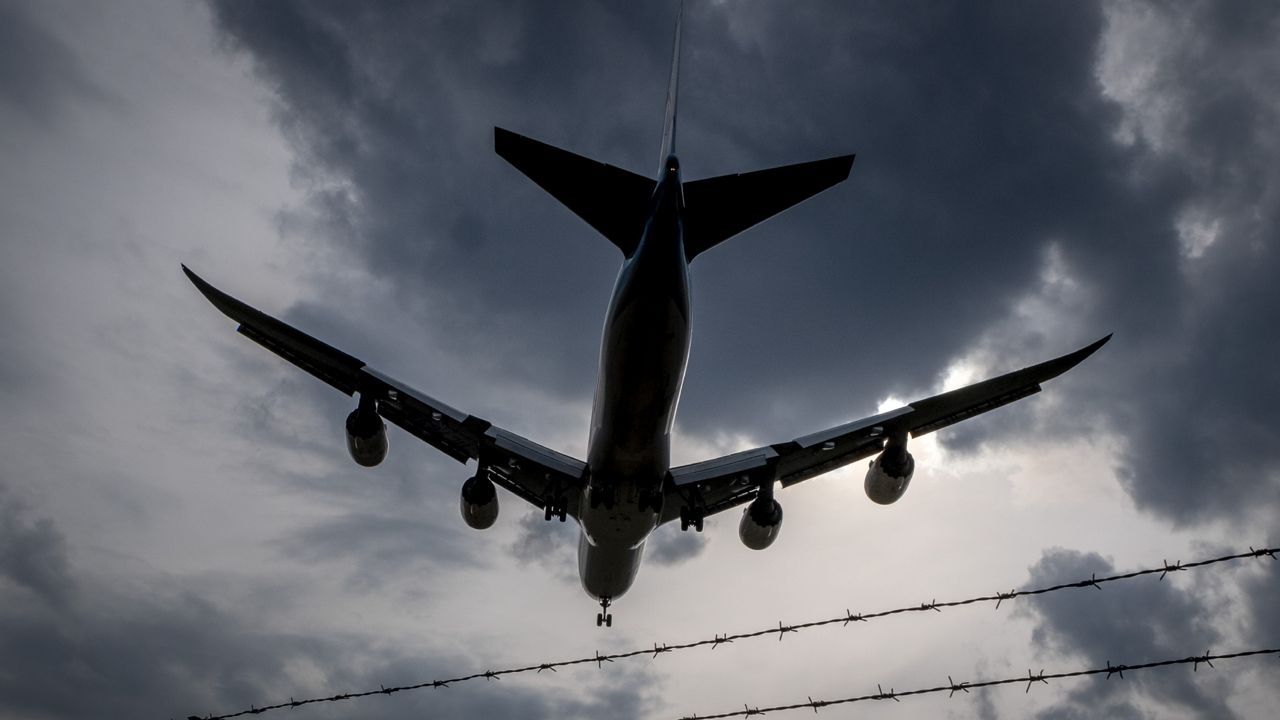Federal regulators are continuing to pursue large penalties against a few airline passengers accused of disrupting flights.
The Federal Aviation Administration said Monday that it will seek fines totaling more than $100,000 against four passengers on recent flights, including a penalty of $52,500 against a man who was arrested after trying to open the cockpit door and striking a flight attendant in the face.
Airlines have reported a spate of troubling incidents in recent months, many of them involving passengers who refuse to wear face masks — that’s still a federal requirement even after health officials relaxed guidelines around mask wearing last week.
In the most recent cases, the most egregious occurred on a Delta Air Lines flight in December from Honolulu to Seattle. The FAA said a man tried to open the cockpit door and assaulted a flight attendant, striking him twice — the second time after he broke free from plastic handcuffs. The FAA said police boarded the plane in Seattle and took him into custody.
The FAA proposed a $27,000 penalty against a man on a New Year’s Day flight aboard Southwest Airlines who yelled and said he had a bomb and would blow up the plane. The pilots made an unplanned landing in Oklahoma City, where the man was arrested.
Two passengers on other flights face potential fines for not covering their mouth and nose with a mask. The FAA has announced more than a dozen instances of large potentials for misbehaving passengers in recent weeks.
None of the passengers were identified. They have 30 days to protest to the FAA.
It’s a federal crime to “assault, threaten, intimidate, or interfere with a crewmember in the performance of the crewmember's duties aboard an aircraft being operated." Many of the recent, legally actionable incidents were due to passenger intoxication, while others stemmed from passenger’s alleged refusal to comply with federal mask-wearing mandates.
As of early May, FAA officials had received around 1,300 reports of unruly passengers in the preceding three months, a record-breaking number for the agency, per an FAA spokesperson.
Because the numbers remained fairly constant year-to-year, the FAA has historically not kept track of how many total reports of unruly passengers it received in any given year.
Instead, the agency tallied the yearly amount of enforcement actions taken against passengers.
According to the most recently available data, last year the agency enforced legal action against 108 passengers as of Nov. 30; in 2019 it enforced 142 legal actions, and 159 the year before. Enforcement actions have remained below 200 since 2005, when the agency reported 205 such incidents requiring legal pursuit.
In total, the FAA has initiated around 1,300 enforcement actions over the past decade — the same number as the amount of incidents reported to the agency between February and May of this year alone.
“The FAA has seen a disturbing increase in incidents where airline passengers have disrupted flights with threatening or violent behavior,” the agency said in a statement on Jan. 13. “These incidents have stemmed both from passengers’ refusals to wear masks and from recent violence at the U.S. Capitol.”
In response, FAA Administrator Steve Dickson announced the agency would adopt a strict “zero-tolerance policy” against passengers who violate federal law when disrupting a flight. While the agency previously dealt with unruly passengers through a variety of methods — including verbal warnings, civil penalties, and counseling — the FAA will now move directly to legal action.
“Flying is the safest mode of transportation and I signed this order to keep it that way,” Dickson said at the time.
Dickson’s directive, which was set to expire in late March, was recently extended through September.



